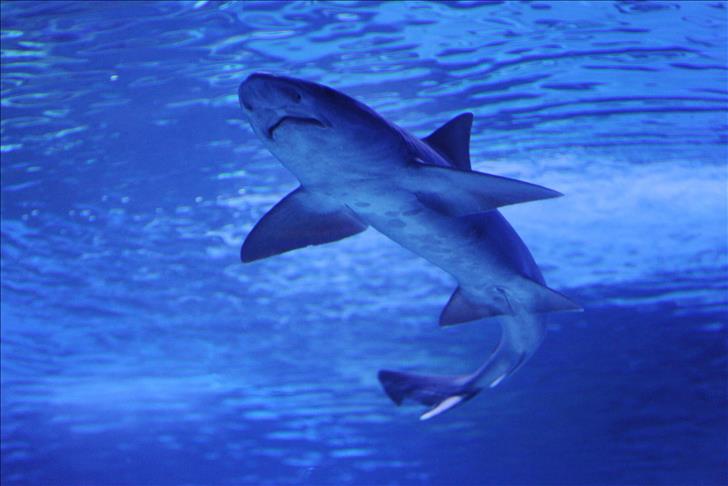
CAIRO
A senior marine biologist said Sunday that violations by divers were responsible for intermittent appearances of sharks near Egypt's Red Sea beaches.
His remarks came hard on the heels of a Saturday deadly attack on a foreign tourist by a shark on an Egyptian beach.
"Sharks do not appear near the shore without provocation or stimulation," Tarek Abdel-Aziz, the head of the government-run High Institute for Marine Biology in the Red Sea resort city of Hurghada, told The Anadolu.
"Many tourists who dive in areas where sharks are active have been throwing food to the sharks, which changes the sharks' behavior," he added.
He said sharks started to be in the habit of swimming toward tourists in search of food, instead of looking for this food at the bottom of the sea.
On Saturday, a German tourist succumbed to his wounds after being attacked by a shark near a beach in Egypt's Red Sea resort town of Marsa Alam.
Egyptian authorities said they had launched an investigation into the incident.
Preliminary investigations indicated that the deceased and his wife had been guests of a Marsa Alam hotel and that he had fallen prey to a shark that bit off his leg, which led to his eventual death.
Similar incidents took place off Red Sea beaches in Egypt, which - at the time - had a negative impact on tourism, one of the country's main sources of foreign currency.
In 2009, a French tourist was killed near Marsa Alam after a shark bit off her leg.
The following year, three Russians and a Ukrainian tourist sustained severe injuries from a shark attack near the Red Sea resort town of Sharm el-Sheikh, located at the southern tip of the Sinai Peninsula.
of the Sinai Peninsula.
Following the attacks, the Egyptian government adopted a series of measures to ensure the safety of marine recreational activities for swimmers and scuba divers.
These measures included requiring hotels and dive centers to assign a shark watcher at beaches known to have frequent shark sightings and inform visitors to evacuate the area if a shark is spotted.
dive centers to assign a shark watcher at beaches known to have frequent shark sightings and inform visitors to evacuate the area if a shark is spotted.
The watchers were also tasked with reporting any sharksighting to the authorities in order to conduct a combing operation and ensure the departure of the sharks.
The government also required hotels and dive centers to report any shark sighting during any diving trip.
Egypt's tourism revenues amounted to $7.5 billion in 2014, up from $5.9 billion in 2013, according to the Tourism Ministry.
The government hopes the tourism sector can bring in 20 percent of its annual foreign currency needs.
Anadolu Agency website contains only a portion of the news stories offered to subscribers in the AA News Broadcasting System (HAS), and in summarized form. Please contact us for subscription options.

